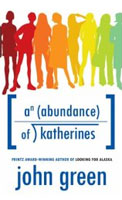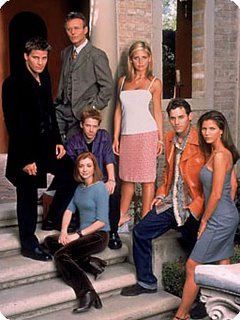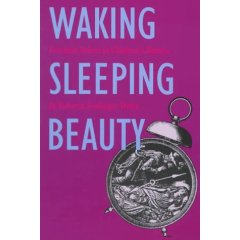
Sadly enough, Laura Ruby's Good Girls is the only new YA book I've read in well over a month. I love books for younger children, too, but I really miss my YA books! I feel like I'm almost there - almost comfortable with the class - so I can actually start reading some things for older kids again. I can't wait to get my hands on America Born Chinese, the new Printz winner - our library's copy is in processing.
The good news is that Good Girls is a good choice to be the only YA book I've read lately. I started it a few months ago but put it aside; the opening did not seem particularly distinctive, and I couldn't remember why I was anticipating this one. However, I went back to it and I'm glad I did.
Audrey, a "good girl" who gets good grades, has been hooking up with her class's playboy, Luke. The hooking up has been all physical, and Audrey's pretty confused. Luke acts like he likes her when they're together, and she loves the way he makes her feel, but he barely acknowledges her at school. Knowing she should end things, Audrey hooks up with Luke one last time. But the last time might be one time too many.
There are some pretty detailed descriptions included in this book, but with good reason. Although describing it this way won't spark the interest of many teens, Audrey really is exploring her sexuality and figuring out how to take control of it, because, so far, it seems to be taking control of her. Teens will totally understand how Audrey feels, physically and emotionally, when she & Luke hook up.
There are some other descriptions that are pretty detailed as well. After finding out her daughter is sexually active, Audrey's mother makes an appointment for Audrey with a gynecologist. It's Audrey's first exam, and she describes it all quite clearly. As far as I know, this is the only such description out there in a YA novel, and it's about time girls had something to help take the mystery out of this sometimes scary experience.
I thought about Good Girls a lot after I finished it, and not just because I didn't have time to move on to another book. Audrey & her experience stuck with me. I loved that Audrey got burned by her sexual experiences, but she didn't let that scare her away. I loved the character development of Audrey, Luke and her friends - Luke is very two dimensional at the beginning of the book, just like his relationship with Audrey. That changes as Audrey changes.
Good Girls isn't a horror story about a good girl gone bad, but it does show how easy it is to end up in trouble when you're a teen - even when you are a good girl.
What I'm reading: Black and White Airmen: Their True History by John Fleischman (for a review)
On My Bookshelf: The Rules of Survival by Nancy Werlin (I've been reading in on my lunch break, but I'm not getting anywhere fast!)









